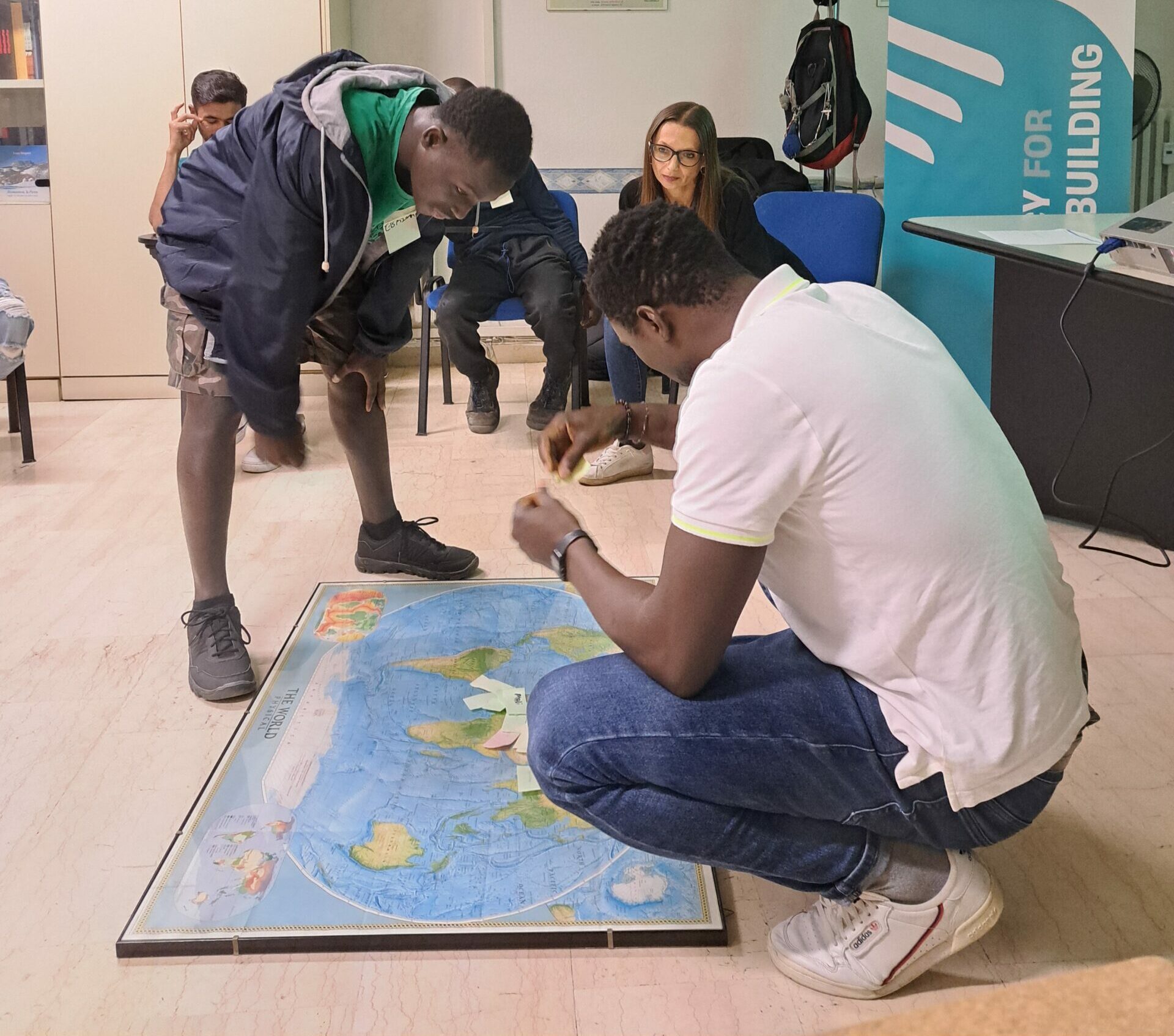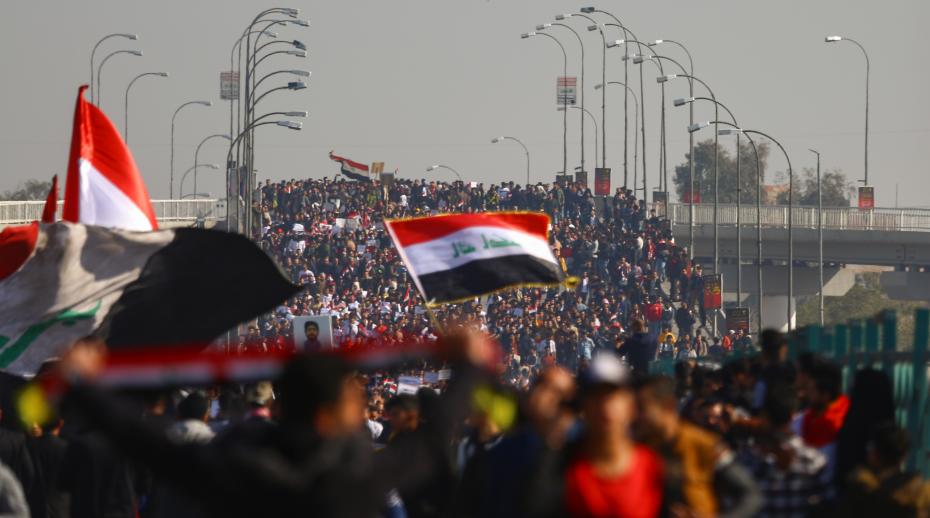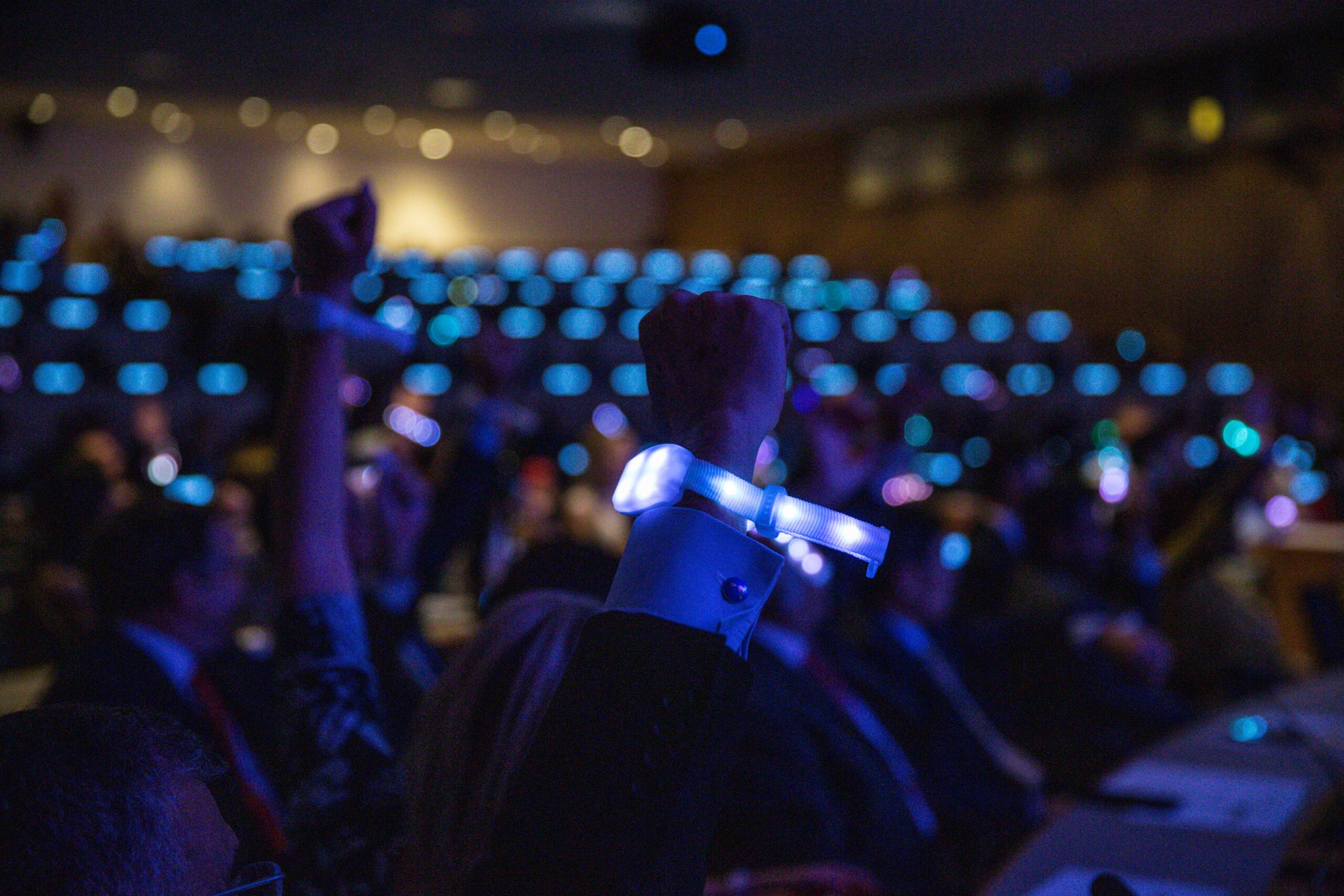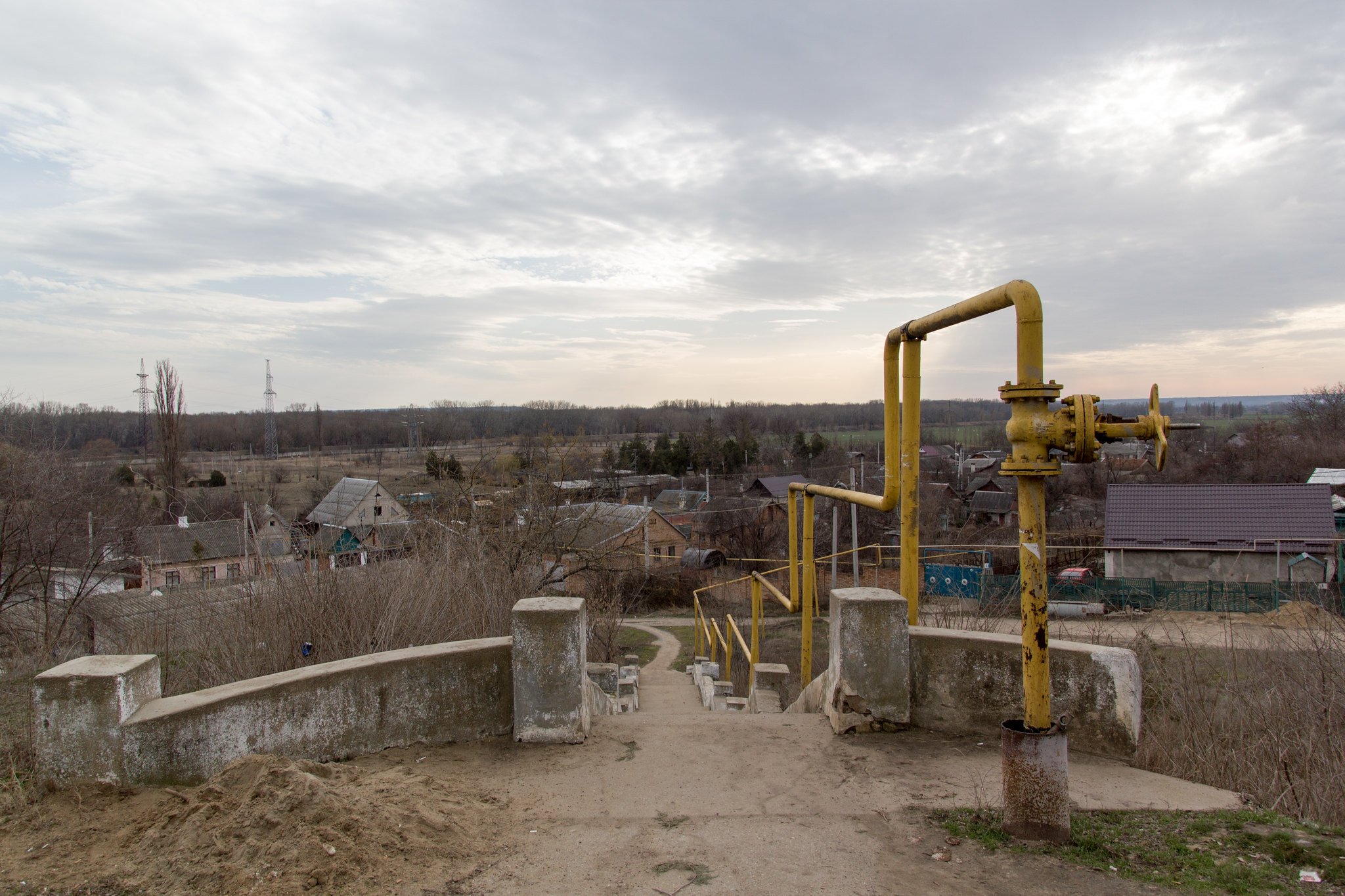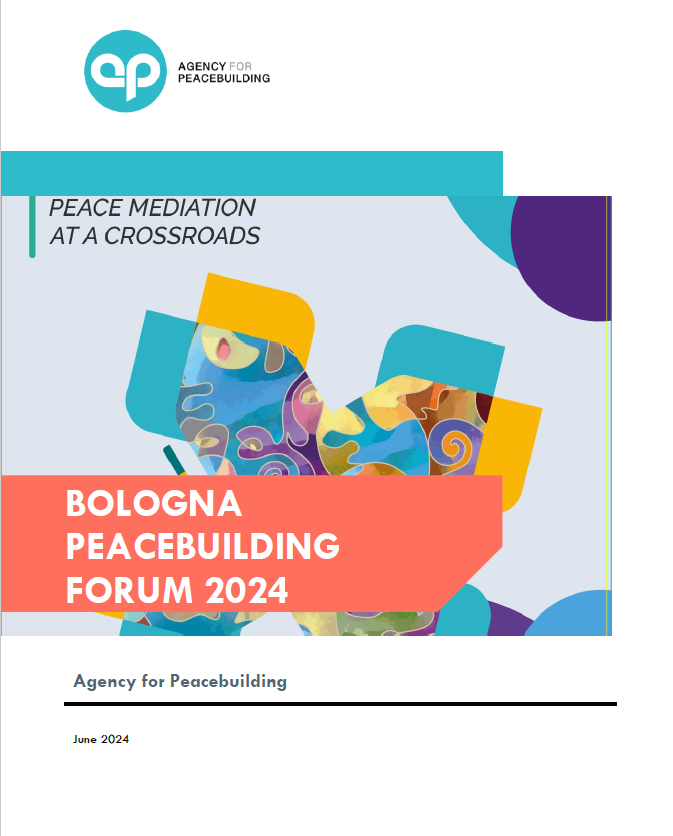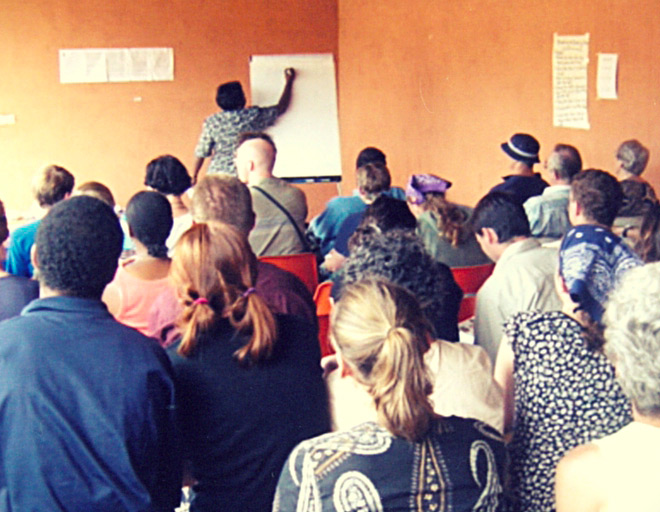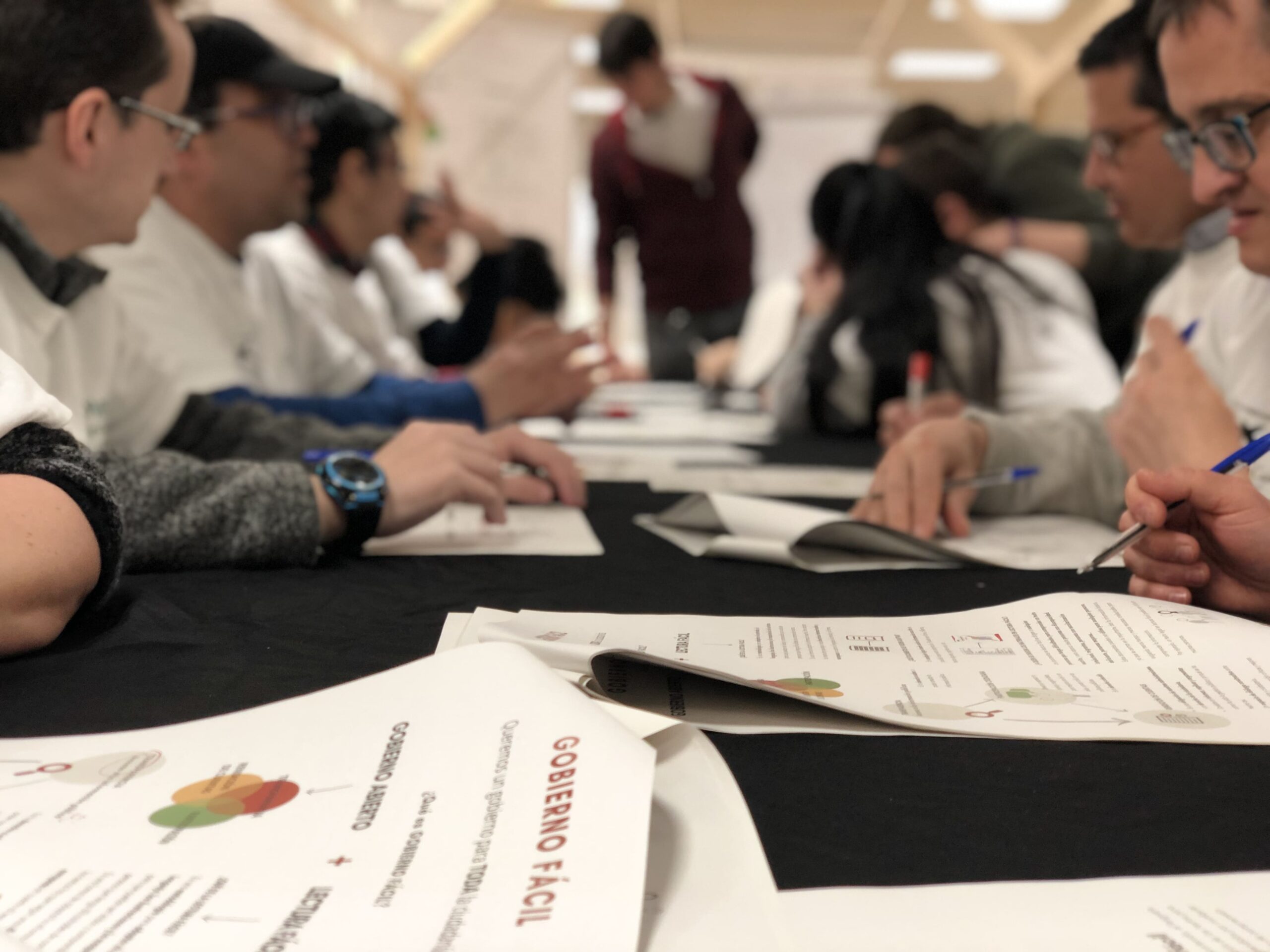28 Jan International Justice under threat: how it can still contribute to peace
Stefano Marinelli 28/01/2025...
Stefano Marinelli 28/01/2025...
19/12/2024 - Mikhail Silvestro Sustersic...
28/11/2024 - Bernardo Monzani...
30/10/2024 - Bernardo Venturi...
22/07/2024 - Bernardo Venturi and Giorgio Comai...
[vc_row css_animation="" row_type="row" use_row_as_full_screen_section="no" type="full_width" angled_section="no" text_align="left" background_image_as_pattern="without_pattern" css=".vc_custom_1624362995150{padding-top: 64px !important;padding-right: 5% !important;padding-bottom: 32px !important;padding-left: 5% !important;}" z_index=""][vc_column][vc_column_text] Bologna Peacebuilding Forum 2024 Report The Bologna Peacebuilding Forum, the flagship initiative of the Agency for Peacebuilding (AP), is a leading annual event with two main objectives. First, to strengthen the network of peacebuilding scholars and practitioners to improve...
25/06/2024 - Bernardo Monzani...
29/04/2024 - Bernardo Venturi...
18/04/2024 - Logan Richman...
19/12/2023 - Bernardo Monzani...
This website uses cookies to improve your experience while you navigate through the website. Out of these, the cookies that are categorized as necessary are stored on your browser as they are essential for the working of basic functionalities of the website. We also use third-party cookies that help us analyze and understand how you use this website. These cookies will be stored in your browser only with your consent. You also have the option to opt-out of these cookies. But opting out of some of these cookies may affect your browsing experience. If you want to know more or deny consent, consult the cookie policy.
| Cookie | Duration | Description |
|---|---|---|
| AWSALBCORS | 7 days | This cookie is managed by Amazon Web Services and is used for load balancing. |
| cookielawinfo-checkbox-advertisement | 1 year | Set by the GDPR Cookie Consent plugin, this cookie is used to record the user consent for the cookies in the "Advertisement" category . |
| cookielawinfo-checkbox-analytics | 1 year | Set by the GDPR Cookie Consent plugin, this cookie is used to record the user consent for the cookies in the "Analytics" category . |
| cookielawinfo-checkbox-functional | 1 year | The cookie is set by the GDPR Cookie Consent plugin to record the user consent for the cookies in the category "Functional". |
| cookielawinfo-checkbox-necessary | 1 year | Set by the GDPR Cookie Consent plugin, this cookie is used to record the user consent for the cookies in the "Necessary" category . |
| cookielawinfo-checkbox-others | 1 year | Set by the GDPR Cookie Consent plugin, this cookie is used to store the user consent for cookies in the category "Others". |
| cookielawinfo-checkbox-performance | 1 year | Set by the GDPR Cookie Consent plugin, this cookie is used to store the user consent for cookies in the category "Performance". |
| CookieLawInfoConsent | 1 year | Records the default button state of the corresponding category & the status of CCPA. It works only in coordination with the primary cookie. |
| Cookie | Duration | Description |
|---|---|---|
| __sharethis_cookie_test__ | session | ShareThis sets this cookie to track which pages are being shared and by whom. |
| Cookie | Duration | Description |
|---|---|---|
| __utma | 2 years | This cookie is set by Google Analytics and is used to distinguish users and sessions. The cookie is created when the JavaScript library executes and there are no existing __utma cookies. The cookie is updated every time data is sent to Google Analytics. |
| __utmb | 30 minutes | Google Analytics sets this cookie, to determine new sessions/visits. __utmb cookie is created when the JavaScript library executes and there are no existing __utma cookies. It is updated every time data is sent to Google Analytics. |
| __utmc | session | The cookie is set by Google Analytics and is deleted when the user closes the browser. It is used to enable interoperability with urchin.js, which is an older version of Google Analytics and is used in conjunction with the __utmb cookie to determine new sessions/visits. |
| __utmt | 10 minutes | Google Analytics sets this cookie to inhibit request rate. |
| __utmz | 6 months | Google Analytics sets this cookie to store the traffic source or campaign by which the visitor reached the site. |
| AWSALB | 7 days | AWSALB is an application load balancer cookie set by Amazon Web Services to map the session to the target. |
| gmid | 1 year | This cookie is set by Gigya to identify the logged in user. |
| hasGmid | 6 months | This is an internal cookie set by Gigya for the Web SDK. |
| wt_nbg_Q3 | session | Webtrekk sets this cookie for load balancing to send all the requests by a user to the same server. |
| Cookie | Duration | Description |
|---|---|---|
| _cb | never | This cookie stores a visitor's unique identifier for Chartbeat tracking on the site. |
| _cb_svref | never | Chartbeat sets this cookie to store the original referrer for the site visitor. This cookie expires after 30 minutes but the timer is reset if the visitor visits a new page on the site before the cookie expires. |
| _chartbeat2 | never | Chartbeat sets this cookie to store information about when a visitor has visited the site before. This helps to distinguish between new, returning, and loyal visitors. |
| CONSENT | 2 years | YouTube sets this cookie via embedded youtube-videos and registers anonymous statistical data. |
| ucid | 1 year | This cookie stores a unique computer identifier to generate reports, and is also used by the Web SDK to get saved responses. |
| wt_cdbeid | 5 months 27 days | The wt_cdbeid cookie is set by Webtrekk to anonymously count the number of visitors across devices. |
| wteid_253822047730481 | 5 months 27 days | Set by Webtrekk Analytics so that the tracking system generates and saves an ever-ID when a user visits the site for the first time. |
| wtsid_253822047730481 | session | Set by Webtrekk Analytics to hold the current track ID. |
| Cookie | Duration | Description |
|---|---|---|
| NID | 6 months | NID cookie, set by Google, is used for advertising purposes; to limit the number of times the user sees an ad, to mute unwanted ads, and to measure the effectiveness of ads. |
| VISITOR_INFO1_LIVE | 5 months 27 days | A cookie set by YouTube to measure bandwidth that determines whether the user gets the new or old player interface. |
| YSC | session | YSC cookie is set by Youtube and is used to track the views of embedded videos on Youtube pages. |
| yt-remote-connected-devices | never | YouTube sets this cookie to store the video preferences of the user using embedded YouTube video. |
| yt-remote-device-id | never | YouTube sets this cookie to store the video preferences of the user using embedded YouTube video. |
| yt.innertube::nextId | never | This cookie, set by YouTube, registers a unique ID to store data on what videos from YouTube the user has seen. |
| yt.innertube::requests | never | This cookie, set by YouTube, registers a unique ID to store data on what videos from YouTube the user has seen. |
| Cookie | Duration | Description |
|---|---|---|
| blaize_session | 4 months 18 days | No description available. |
| blaize_tracking_id | 999 years 4 months | No description available. |
| gig_bootstrap_4_mNhRtMS0AMGWNLnwB1jNOw | 1 year | No description |
| kwsso-3pc | 145 years 1 month 9 days | No description available. |
| SameSite | session | No description |

Evelyn is an Associate Researcher at the Berghof Foundation, independent consultant and peacebuilding practitioner with a focus on community-based approaches and participatory methods. She has over 10 years of research experience on peacebuilding and conflict transformation with field experience in Aceh, Burundi, Colombia, Mindanao, Myanmar, Nepal, Sierra Leone and Uganda. She specialises in gender and conflict, participatory and inclusive processes and creative methods, especially participatory filmmaking. She has co-produced two documentaries with female ex-combatants, exploring their lived realities after war. Her current research investigates the gender-climate-conflict nexus. She also provides policy advice, analysis, training, facilitation and monitoring and evaluation with a focus on impact.
She holds a PhD in International Relations from the LSE, an MPhil in International Relations from the University of Oxford and a BA in Political Science and Public Law from the University of Mannheim. Evelyn was an editor of Millennium: Journal of International Studies, a co-investigator of the Gender, Justice and Security Hub based at the LSE Centre for WPS, and a visiting researcher at the National University of Singapore.

Mikhail Silvestro Sustersic is a peacebuilding expert with a transdisciplinary background and an holistic approach to the complexities of our world. With expertise in peace and security, conflict management, human rights, gender equality and more, Mikhail is dedicated to fostering inclusivity, equality and meaningful dialogue. He holds a Master’s degree in Modern Philology from the University of Padova, followed by a European Master’s Degree in Human Rights and Democratisation (E.Ma) from EIUC and Maastricht University and a Master’s degree in Cultural Diplomacy. Strongly committed to championing youth, women, LGBTI+ and minorities participation in peace and security, he is passionated about preventing and countering violent extremism (P\CVE), transitional justice and supranational criminology. Monitoring, evaluation and learning (MEL) expert, trainer, facilitator and researcher, Mikhail has made successful contributions to impactful projects and evaluations for esteemed international organizations such as the United Nations, OSCE and ODIHR, Council of Europe, and civil society organizations including Search for Common Ground, USIP, UNOY, Kofi Annan Foundation, and GCERF. But Mikhail’s vision goes beyond conventional approaches. As a LARP (Live-Action Roleplaying) and experience designer with the association Chaos League, he creates immersive scenarios for personal and social transformation, challenging participants to think differently and inspiring profound change. Related to this, Mikhail is also deeply interested in future thinking and foresight design, seeking innovative solutions to address emerging challenges. Mikhail’s commitment extends to his volunteer work as an emergency rescuer with the Italian Red Cross.

Giulia has an international legal background with field and headquarters-level experience in the peace and security sectors across four continents. Her expertise spans operational management and advocacy. She is also an active member of various networks in peace, security, and international cooperation.
Giulia holds a Master of Laws from the University of Melbourne and an Integrated Master’s Degree from Università Cattolica del Sacro Cuore in Milan, Italy. She also studied law in the UK and Lithuania and completed executive-level training in peacebuilding in Switzerland. Giulia is AP’s Project Manager.
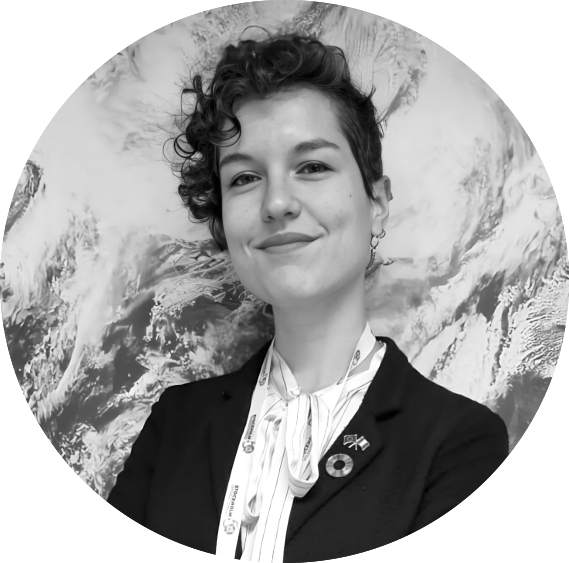
Nadia Paleari is a Communication Strategist and Climate Policy Advisor with a background in International Relations and European Studies, as well as a Master’s degree in Public Diplomacy.
Her expertise in stakeholder engagement and youth involvement in sustainable development led to her appointment by the European Commission as a European Climate Pact Ambassador.
In this role, she advocates for climate action and promotes sustainable development among young people.
Additionally, she serves as a recognized observer NGO by UNFCCC, actively participating in international climate negotiations, including COP conferences.
Nadia is AP’s Communication Officer.

Daniela Castagno is an economist by background and an intersectional feminism enthusiast, with almost 20 years of international experience in European and Middle Eastern countries, where she worked with UNDESA, the Italian Ministry of Foreign Affairs, and the European Commission before joining the philanthropic world. She has extensive practice in both international cooperation and philanthropy, facilitating the design and implementation of collaboration and funding schemes, and supporting social and economic transformation through civil society organisations. Currently, she works as an International Program Manager at the Kering Foundation, where she leads the Foundation’s partnerships with Italian, Mexican and Korean local organizations supporting women survivors and implementing prevention and cultural change activities. Graduated from Turin University, Ms Castagno holds a MSc in Development Studies from SOAS – University of London. She was a Senior Fellow at the Centre on Philanthropy and Civil Society at the City University of New York.

Gianluca has more than 20 years of experience in international cooperation. He has held roles as project manager and country representative, focusing primarily on food security, disaster prevention, and emergency response in conflict areas, especially in South America, Middle East and Africa. In recent years, he has specialized in financial management and administration, supporting different organizations in developing workflows and operational procedures aimed at enhance efficiency and transparency in resource allocation and financial management.

Shadi is a peacebuilder, futurist, researcher and practitioner with a decade of multidisciplinary experience. While most of her experience comes as a result of her active role with international NGOs and youth networks, she has worked with United Nations agencies in Iran and at HQ. She has founded her own young women-led peacebuilding initiative in Iran, PeaceMentors. She was formerly the leading editor of the Journal of Youth, Peace and Security and the MENA Regional Coordinator of the United Network of Young Peacebuilders. Shadi’s research focuses on intergenerational leadership in peace and security at the nexus of the Youth, Peace and Security and Women, Peace and Security agendas. She uses foresight and futures thinking as well as immersive experiences as innovative methodologies and approaches to conducting research and change-making in international development.
Her previous roles have enhanced her expertise in monitoring and evaluation, project cycle management and capacity development. She is a skilled facilitator, an enthusiastic community builder and a qualitative researcher. Shadi holds a BA and MA in English Literature (minor in Postcolonial studies) from Allameh Tabataba’i University, a double joint MA in International Development (minor in Migration and Mediation) from the Ca Foscari University of Venice and Paul Valery Montpellier 3 University. Currently, she is an associate research fellow at Alfred Deakin Institute and a PhD candidate at the University of Melbourne. Shadi is a Kroc IPJ Women PeaceMaker Fellow, a UNAOC Young Peacebuilder Fellow and a One Young World EU Commission Peace Ambassador. She speaks 5 languages and has conducted research with and on youth in Tunisia, Canada, Italy, Iran, Burundi, Uganda, the DRC and Australia.

Hodan has over 15 years of experieence in the areas of peacebuilding, good governance, gender equality and women’s rights and empowerment in a different environment ranging from conflict, post conflict to peace and stability. Hodan worked with a number of development Institutions in East Africa countries and worked as a consultant on research and evaluation in the region. She has a wealth of experience in advocating for gender equality policies, advancing women’s interests and capacities, and is committed in connecting women leaders both at grassroot and policy levels to achieve women’s rights and enhance their involvement and meaningful participation in political and peacebuilding processes in the region. She holds Master’s Degree in Sociology and community development obtained from Agra University, India.

Dr. Kuyang Harriet Logo Mulukwat taught international law, international human rights law, women and child law at the University of Juba. Kuyang works on democratic governance, access to justice and the rule of law issues, with extensive experience in evaluating UN interventions. Prior to becoming an academic and consultant, Kuyang served with the United Nations Development Programme in the capacities of rule of law analyst, programme analyst for the rule of law cluster and access to justice specialist in Sudan, South Sudan and Timor Leste. Kuyang has published 4 book chapters and peer reviewed journal articles on knowledge production and transitional justice, international humanitarian law, customary law and gender issues. Dr. Kuyang was fellow of the Data and Displacement Project, University of Warwick and was a member of the Expert Working Group of the Africa – China – Europe on promoting dialogue and cooperation to prevent the diversion of arms and ammunition in Africa. She is currently a fellow of the Rift Valley Institute and is a gender lead for the Peacebuilding Opportunities Fund2.

Bert Koenders holds the Kooijmans Chair in Peace, Security and Justice at Leiden University and is Chairman of the Dutch Advisory Council on International Affairs.
Mr Koenders served as Minister of Foreign Affairs of the Netherlands from October 2014 to October 2017. He was a member of the House of Representatives from 1997 to 2007 and served as Minister for Development Cooperation from 2007 until 2010. He was the Under Secretary General of the United Nations and served as the Secretary-General’s Special Representative and Head of the United Nations Operation in the Ivory Coast (2011-2013), and Special Representative and Head of the United Nations Multidimensional Integrated Stabilization Mission in Mali (2013-2014).
Mr Koenders has also served as President of the North Atlantic Treaty Organization Parliamentary Assembly and was Founder of the Parliamentary Network on the WorldBank/IMF. He has been a Visiting Professor at Johns Hopkins University SAIS.

Bernardo has 20 years of experience in the international development sector, where he is an expert on conflict resolution, peacebuilding, governance and support to civil society in fragile and conflict-affected countries. Bernardo is also a monitoring, evaluation and learning expert, who is specialized in using theories of change (and theory-based approaches) to assess the effectiveness and impact of initiatives focused on advocacy and social change. Bernardo has designed, coordinated and led complex assignments across five continents. He is also an experienced analyst, who monitors and regularly comments on peace and conflict developments in the Middle East and North Africa. Bernardo has worked for several international NGOs—including International Alert in the UK, Search for Common Ground in Belgium and Morocco, and the European Centre for Minority Issues in Georgia—and for UN peacekeeping missions in Haiti and Liberia. He holds a BA from Tufts University and an MA from the Johns Hopkins School of Advanced International Studies (SAIS) in Washington DC.
Bernardo is AP’s co-founder and Head of Monitoring, Evaluation and Learning.
Women’s marginalization and the failures of the Libyan Peace Process
Italy’s contribution to peacebuilding: one step forward, two steps back
Women, Peace and Security in the Horn of Africa: a guide to programming
Civil society as the engine for stability and growth in Africa
Peace is still possible in Libya, but only with the involvement of civil society
Women Peace and Security in the Horn of Africa: between rhetoric and reality

Bernardo Venturi has 20 years of experience in research, training, policy work and programme management mainly on peacebuilding, conflict resolution, EU external relations, good governance and international cooperation. He likes to blend theoretical analysis and fieldwork in order to bring practicality to the former and reflection to the latter. Bernardo is also Adjunct Professor at the University of Bologna, an Associate Researcher for the Istituto Affari Internazionali (IAI) and lectures in several MA courses and training programmes in different countries. Bernardo obtained his PhD in 2009 from the University of Bologna, where he also held a post-doctoral research fellowship.
Bernardo consulted for several regional and international organizations including the European Commission, EEAS, European Parliament, IGAD, OSCE, the Italian MFA and several international NGOs and platforms.
Bernardo is a frequent media commentator for different Italian media (e.g., Radio Tre, Il Sole 24 Ore, Repubblica, Avvenire, Quotidiano Nazionale, etc.) and international ones (e.g., BBC Radio, Le Soleil, El Confidencial, etc.).
Periods of study and research led him to Chulalongkorn University in Thailand, Moldova State University, the Peace Research Institute in Oslo (PRIO), the US Institute for Peace (USIP) and Sussex University. Among his past positions, he was the Director of the Centro Studi Difesa Civile (CSDC) and he also contributed to the European Peacebuilding Liaison Office (EPLO) contributing as a Steering Committee member. Bernardo served as AP’s Director for seven years (Oct. 2015 – June 2023).
Bernardo is AP’s Co-Founder and Head of Research and Policy.
Peacebuilding in Italy: a sector in need of identity
Women, Peace and Security in the Horn of Africa
Youth, Peace and Security: an Agenda for change
Project evaluation: Building peace in Mindanao
Project evaluation: good governance in Africa
Intercultural action in Bologna
Resisting the normalization of violence
Tanzania: when statistics becomes the enemy
Italy’s contribution to peacebuilding: one step forward, two steps back
Local participation and migration: the role of countries of origin
How to promote healthy state-citizens relations in Africa
Preventing violence in a “peaceful country”: the case of Tanzania
- L’inclusione nei processi di pace: promuovere la partecipazione per assicurare risultati sostenibili
- Bernardo Venturi discusses the application of the EU-Italy-Tunisia agreement [Quotidiano Nazionale]
- Reflections from the Bologna Peacebuilding Forum, on the Triple Nexus, Ukraine, and Sudan [Oltremare]
- Director for Agency for Peacebuilding says, ‘Europe needs to listen to civil society’ [DIRE]
Project assessment: Dumisha Amani Zanzibar
Implementing the YPS agenda at the country level
Evaluation report: Inuka!Community-Led Security Approaches to Violent Extremism in Coastal Kenya
Final evaluation: “Madame President” project
Assessment summary: Women peace and security in the Horn of Africa

Celina has more than twenty years of experience in peacebuilding specifically focusing on strengthening youth participation, and on peace and global citizenship education. She has experience as a process and dialogue facilitator, trainer, researcher, evaluator and developer of curriculum and educational materials. She has worked for several local governments, universities, intergovernmental and civil society organisations, mostly based in Europe and Latin America. Celina is also a grant proposals reviewer for the International Peace Research Association (IPRA) Foundation and a Member of the Code of Good Practice Panel of Experts of the Irish Development Education Association. Celina has a PhD in International Relations (Radboud University Nijmegen, the Netherlands), a MA in Peace and Conflict Studies (European Peace University, Austria), and a BA in Political Science (National University of Rosario, Argentina). She speaks English, Spanish, French, and Portuguese. Celina contributed to AP for 5 years (2018-2023) as an Advisor on Youth, Peace and Security.
Celina is AP´s President.

Mariachiara is a master’s degree candidate in International Relation – crime, justice, and security curriculum in the University of Bologna. She is passionate about conflict transformation and peacebuilding issues and the Middle East is her main area of interest. She is keen on organizing and planning and have several years of experiences as project manager in associations.
She first interned for Agency for Peacebuilding and she is now collaborating with AP where she is able to deepen her academic interests for peace and conflict studies and her project development skills.
She is active in volunteer work that includes nonformal education activities with children.

Hashim Pondeza has over 10 years of working experience in social, economic and political aspects of Tanzania, with a long professional experience in Zanzibar. He is a founder of a youth championing non-profit organization named Center for Youth Dialogue (CYD). Among other assignments, Hashim worked as a Zanzibar Coordinator for a UNDP project and consulted for UNODC’s CVE project in East Africa. Hashim holds a master’s degree in Public Administration obtained from the Bowling Green State University (BGSU) in Ohio, USA.

Ylenia has more than 10 years of experience in research, project management and monitoring and evaluation, particularly in the areas of migration, international protection, and global citizenship education. She has worked for academic institutions and international organisations in Europe, North and West Africa, the Middle East, the Balkans and Southeast Asia. As a consultant, she has been conducting assignments, mainly in the field of monitoring, evaluation and learning, for several development cooperation actors. She was a postdoctoral research associate at the “Borderlands” project hosted by the Robert Schuman Centre for Advanced Studies, European University Institute. Ylenia holds a Ph.D. in Comparative Law from the Sant’Anna School for Advanced Studies, an MA in International Relations from the University of Florence and BA in International and Diplomatic Sciences from the University of Genoa.

Alessandro is a peacebuilding practitioner with over 10 years of experience. He has worked with the United Nations and with leading peacebuilding agencies such as Search For Common Ground and International Alert, where he managed large and complex projects, mainly in the Democratic Republic of the Congo. Alessandro’s focuses include research, training and facilitation in conflict analysis, as well as conflict sensitivity and “Do No Harm” methodologies. His areas of interests include conflict dynamics over access to services and resources, with a specific focus on conflicts between refugees and host populations and conflicts between sedentary and nomadic populations in Central and Western Africa. Alessandro holds a University Degree in Political Sciences from the University of Florence, an MA in Human Rights and Conflict Management from the University of Sant’Anna in Pisa, and a Degree in Research Methods from the University of Bradford (UK).

Anthony is a social science researcher and practitioner with more than 10 years of experience in the spheres of security, terrorism, violent extremism and radicalization, peacebuilding and governance. Anthony has worked as a consultant on research, monitoring and evaluation in the context of various projects in East and Central Africa, and was previously a law enforcement officer for the Tanzanian government. Anthony has significant experience working at the local, national, and regional levels, designing and conducting complex research assignments. An expert on East Africa’s security and political economies, he holds a bachelor’s degree in Political Science and International Relations from the University of Dar-es-Salaam, and a master’s degree and a Post Graduate Certificate in Strategic Security from The George Washington University. He is currently in his final semester for a Post Graduate Certificate in Criminal and Intelligence Analysis at American Military University. Anthony is AP’s Senior Advisor on research, including monitoring and evaluation.

Valentina is a researcher affiliated with the Interdisciplinary Centre Science for Peace, in Pisa, a visiting professor at the University of Pisa and an Invited Professor at Dauphine University in Paris. She is the recipient of a research fellowship from the Veronesi Foundation, for 2015-2016, and a Visiting Fellowship at Derby University, in the UK; she also collaborates closely with the Faculty of Social and International Studies at Bradford University, also in the UK. In 2013-2014, Valentina was a Fulbright Research Scholar at Arizona State University. She regularly consults with national and international agencies on issues of terrorism, organized crime, migration and foreign policy. Her interests focus on foreign and security policies, peacebuilding, terrorism and counter-terrorism, and on strategic communication.

Stefano has a PhD in international law at Middlesex University in London. He researches and lectures on the role of international tribunals in conflict resolution and the relation between international justice and peace and security. He has experience in the field of human rights and conflict transformation in the NGO sector, and has worked in the Middle East, South Caucasus, Balkans, North Africa and Sudan. He collaborates with public institutions in the management of European funds, is a lawyer at the bar of Madrid and a consultant for different law firms. Stefano has been living and working in Italy, Switzerland, the UK and Spain. He holds an MA in International Relations from the University of Florence, an LLM from the Geneva Academy of International Humanitarian Law and Human Rights, an MPhil from Middlesex University. He co-founded and co-ordinates An International Law Blog, a platform that promote discussions on issues related to international, transnational and European law among lawyers and scholars.

Donata Garrasi is a political scientist with 25 years’ experience leading research, policy, and programmatic initiatives on peace, security, and conflict related issues.
Between 2018-2021 Ms Garrasi served as Director of Political Affairs for the United Nations for which she led sensitive political engagements and peace initiatives in Africa’s Great Lakes sub-region. She previously held senior positions with the World Bank, the OECD, the UK Government, and consulting firms for which she developed and managed successful multi-million US$ engagements in support to peacebuilding, political transitions, and stabilisation operations in West, Central Southern and East Africa, the Middle East, Central and South-East Asia, and globally.
Ms Garrasi has collaborated extensively with financial institutions and multinational companies on issues related to natural resources management and investments in high risk and transitional contexts, contributing to enhancing due diligence processes and multi-stakeholders’ processes, and to preventing and addressing reputational, operational, and financial risks associated with terrorism financing, conflict minerals, and poor governance and security environments.
Ms Garrasi developed methodologies to conduct peace and conflict analysis, recovery and peacebuilding assessments, and conflict sensitive screening which are currently used by leading international and regional organisations. She has developed and delivered trainings on crisis management, political economy analysis in crisis affected situations, conflict prevention, and negotiation for senior-level political and development officials of the European Union, the World Bank, the UK Government, ECOWAS, and private sector partners.
A trained mediator, Ms Garrasi has been directly involved in negotiations in national and sub-national crisis contexts.
Ms Garrasi is an Italian national. She holds a MA in International relations from the University of Florence, Faculty of Political Science, and has completed executive programmes including with Yale School of Management and Harvard Kennedy School. She speaks English, French, and Spanish.

Claudio Pezzi is a lawyer admitted to the Bologna Bar, managing partner of the law firm Pezzi & Associati based in Bologna, with an extensive experience in international law of commerce and private international law. Over the past years Claudio has developed a robust experience on entertainment Law and IP Rights, most notably in in the field of Copyright Law dealing with international clients in the area of digital copyright infringement and licensing of photographs, movies, music and videos.
In his practice Claudio dealt with international human rights cases and is a member of the International and human rights committee of the Bologna bar.
Claudio has a Master of Laws (LLM) in American Law and International Legal Practice from Loyola Law School in Los Angeles, U.S.A.
He is a member of the International Committee of the Bologna Bar Association and founder and president of ILMA – International Law Meeting Association, a local association promoting the study of International Law.
As a member of Rotary International, over the past 10 years he has promoted, sponsored, introduced and obtained from the Rotary Foundation more than 15 post-graduate scholarships in the field of Peacebuilding.

Senior European Programme Manager, Ariadne – European Funders for Social Change and Human Rights Based in Brussels, Debora identifies trends and opportunities, promotes membership, and liaises with other funders’ networks. Debora has 15 years’ experience of professional and volunteer activities for foundations, NGOs and international organisations. Before joining Ariadne, she worked for a few years as an independent consultant. Previously, she managed the anti-discrimination work of the Open Society Initiative for Europe (OSIFE) focusing on Western Europe for five years. From 2008 to 2011, she managed the European Programme for Integration and Migration (EPIM), a grant-making initiative of NEF. Formerly, she worked for UNESCO in Cuba and Mexico and for Handicap International Belgium. She studied international relations, political sciences, culture and development studies, in Italy (Padua), France (Sciences-Po Paris), and Belgium (University of Leuven).

Tom Dewar is now affiliated with Nurture Development as a Senior Associate, as well as being an Emeritus faculty member with the Asset Based Community Development Institute. He was previously Co-Director of the Aspen Institute’s Roundtable on Community Change. He now lives in Bologna, Italy where he taught international and community development through the School for Advanced International Studies of the Johns Hopkins University (2001-2007), in Bologna.
From 1998-2001, he was director of Evaluation for the MacArthur Foundation in Chicago – his hometown. He continues to serve as a Senior Advisor to MacArthur in support of their Safety and Justice Initiative, a ten-year commitment to change the way jails are used (and mis-used) in the US. Prior to that he was Senior Project Associate at Rainbow Research in Minneapolis (1991-1997); where he worked with a variety of community-driven initiatives, non-profit organizations and community foundations across the U.S. to improve their effectiveness and impact. Before Rainbow, he was a long=time faculty member of the Humphrey Institute of Public Affairs at the University of Minnesota, where he taught and conducted action research (1974-1990).
His teaching, research, writing and public speaking have addressed a variety of topics, including especially the key challenges in community development, role of mutual aid and informal networks in community building, the social and economic organization of neighborhoods, achieving racial equity, and the dangers of an over-reliance on professional service delivery systems. He has led numerous evaluations that have focused on these topics, as well as on efforts to re-integrate formerly institutionalized (and other labeled) people into local communities, reform policy and practice in state level juvenile justice systems, provide employment and income for lower skilled and less experienced workers, improve the integration of school and work, carry out peacemaking and conflict mediation, strengthen sustainable agriculture, and promote strong and effective community organizing..

Ambassador Lamberto Zannier is a High-Level Expert at the OSCE Parliamentary Assembly and has occupied this position since September 2020. He served as the OSCE High Commissioner on National Minorities from July 2017 until July 2020. Previously, he was OSCE Secretary General for two consecutive three-year terms, from 1 July 2011 until 30 June 2017. Other senior positions include UN Special Representative for Kosovo and Head of the United Nations Interim Administration Mission in Kosovo (UNMIK) from 2008 to 2011, with rank of UN Under-Secretary-General, Director of the Conflict Prevention Centre of the OSCE (2002-2006), Chairperson of the negotiations on the adaptation of the Treaty on Conventional Armed Forces in Europe (1998-1999) and Head of Disarmament, Arms Control and Cooperative Security at NATO (1991-1997). Between 2006 and 2008 he served as Coordinator for CFSP and ESDP (now CSDP) in the Italian Ministry of Foreign Affairs, dealing inter alia with EU foreign policy issues and with Italy’s participation in EU operations, both civilian and military.
Zannier joined the Italian Foreign Ministry as a career diplomat in 1978 and also served in Abu Dhabi, Vienna and The Hague, mainly specializing in multilateral and security affairs. From 1976 to 1977 he worked at the Legal Office of the UN Food and Agriculture Organization (FAO) in Rome on issues related to international river basins and the shared use of internal waters.
Amb. Zannier is author of several publications on international affairs, conflict prevention and crisis management issues. Visiting Professor, University of Trento; member of Advisory Board, Italian Agency for Peacebuilding; former Director for Euro-Mediterranean Diplomacy and Intercultural Affairs, IFIMES Institute of research studies; former President of the Istituto per la Ricerca sul Negoziato, University of Gorizia.
He holds a Doctorate in Law, an advanced degree in international relations from Societa’ Italiana per le Organizzazioni Internazionali in Rome and an honorary doctorate in International and Diplomatic Sciences (2016) from the University of Trieste, Italy.

Ivan Vejvoda is a Permanent Fellow and Director Europe’s Futures project at the Institute for Human Sciences, Vienna, Austria.
From 2010 – 2017 he was Senior Vice President at the German Marshall Fund of the United States (GMFUS) in Washington D.C. From 2003-2010 he was in Belgrade the Executive Director of the Balkan Trust for Democracy, a project of GMFUS supporting democratic initiatives and civil society. Vejvoda came to GMF in 2003 from distinguished service in the Serbian government as senior advisor on foreign policy and European integration to Prime Minister Zoran Djindjić. He was executive director of the Belgrade-based Fund for an Open Society from 1998 to 2002. During the mid-1990s, Mr. Vejvoda held various academic posts in the United Kingdom (University of Sussex) the US (Macalester and Smith Colleges). Ivan Vejvoda was involved in the democratic opposition movement in Yugoslavia through the 1980s and 1990s. A political scientist and political theorist he has published extensively on: democracy, totalitarianism, the French Revolution, comparative European politics, Balkans.
He was awarded the French National Order of Merit in the rank of Officer (2006) and the Italian Order of the Star of Italian Solidarity rank of commander (2007).

Huma is an affiliated senior researcher at the Leuven Institute of Criminology (KU Leuven) and an independent research consultant with national and international human rights and development organizations, including the Afghansitan Independent Human Rights Commission, GIZ, ECHO (European Commission), Alert International and other institutions. Her research area is human rights (with focus on women’s rights and Housing, Land and Property rights) and transitional justice with extensive fieldwork in Afghanistan. Previously she has worked with the UN Development Programme (UNDP) in Kabul as well as human rights and women’s rights organizations in Afghanistan, Pakistan and internationally. She has a PhD in criminology (KU Leuven), MA in human rights (LSE) and BA in Political Science (UMBC). She is the recipient of numerous academic awards, including the Jack Kent Cooke Foundation scholarship, and is a published author in a number of peer reviewed international academic journals.

Economist and expert in migration and public health: her research interests are mainly concentrated on the impact of mobility and migration on European welfare and health systems. She also works on the organization of reception systems and integration of migrants in Europe. She is currently working as researcher at Department of Social, Political and Cognitive Sciences at University of Siena as a member of the Inequality Lab (Laboratorio delle Diseguaglianze).
For seven years she has worked at the Robert Schuman Centre for Advanced Studies (RSCAS) of the European University Institute (EUI) as Research Fellow and Project Coordinator. She has also collected working experience with international organizations, other research centres and NGOs on policy analysis in Belgium, Canada, Bosnia and Herzegovina, Italy, Netherlands, Serbia and Spain. She holds a Ph.D. in Economics by the University of Siena (Italy), a M.Sc. degree in Development Economics from the University of Florence (Italy) and a B.Sc. degree in Law and Economics from the University of Bologna (Italy). She is an active contributor and a peer reviewer for several journals and she has been invited as speaker and guest lecturer at different international conferences and universities.

Emiliano Alessandri is AP’s Senior Advisor on International Partnerships and Global Outreach. He brings significant conflict-cycle expertise in key regions, from the Middle and North Africa (MENA) to Eastern and South-Eastern Europe. Emiliano’s entire career has focused on conflict management and conflict resolution, drawing on a 15-year plus track record of working at the cusp of research and policy in the field of international security. He is a non-resident scholar with the Middle East Institute of Washington and a non-resident senior transatlantic fellow with the German Marshall Fund. He is also the senior officer for the Mediterranean and MENA regions for the Organization for Security and Co-operation in Europe (OSCE).



